A Hybrid KNN-PNN Approach for Enhanced Fault Detection in Photovoltaic Systems
Problem Definition
The literature review on fault detection techniques in PV systems reveals that while these systems are widely used for their cost-effectiveness and ease of maintenance, there are significant limitations that hinder their overall performance. Traditional fault detection systems focus primarily on faults occurring during operations, neglecting other factors that can impact system performance. This lack of comprehensive fault tolerance can lead to decreased efficiency and reliability. Additionally, existing models are trained and tested using only one dataset, limiting their ability to accurately detect faults in diverse scenarios. These shortcomings highlight the need for a new approach that addresses these limitations and improves the overall efficacy of fault detection in PV systems.
By incorporating additional fault causing areas and enhancing the model's capabilities, a novel approach can provide more reliable and comprehensive fault detection solutions for PV systems.
Objective
The objective is to address the limitations of existing fault detection models in PV systems by introducing a hybrid model that combines K-Nearest Neighbors (KNN) and Probabilistic Neural Network (PNN) techniques. This hybrid model aims to improve fault classification accuracy by considering various types of faults, including weather-based factors, and utilizing two datasets for training. By enhancing the fault detection system with additional fault causing areas and training scenarios, the proposed approach seeks to provide more reliable and comprehensive fault detection solutions for PV systems.
Proposed Work
The proposed work aims to address the limitations of existing fault detection models in PV systems by introducing a hybrid model that combines K-Nearest Neighbors (KNN) and Probabilistic Neural Network (PNN) techniques. This hybrid model is designed to improve the fault classification accuracy by working with different types of faults beyond the traditional on system faults. By utilizing two datasets, including a weather-based dataset in addition to the standard dataset, the proposed model ensures that the intelligent network is trained with a variety of scenarios, allowing for more accurate fault detection. Considering factors such as seasonal variations that can impact the performance of PV systems, the inclusion of the weather-based dataset enhances the overall effectiveness of the fault detection system.
Moreover, the incorporation of KNN classifier alongside PNN in the proposed scheme is a strategic choice to further enhance fault detection rates.
While PNN excels in scenarios where all possible cases are provided during training, the addition of KNN adds a layer of flexibility by utilizing the nearest neighbor algorithm for cases where input data deviates from the trained network. By combining the classification decisions of both classifiers, the proposed model ensures a more efficient and accurate fault detection process. Overall, the proposed work not only overcomes the shortcomings of traditional fault detection systems in PV systems but also significantly enhances the overall performance by leveraging a hybrid approach and incorporating additional datasets for training and testing.
Application Area for Industry
This project's proposed solutions can be applied across various industrial sectors utilizing PV systems, such as renewable energy, power generation, and smart grid management. One of the specific challenges that industries face in these sectors is the early detection and mitigation of faults in PV systems to ensure optimal performance and prevent costly downtime. By utilizing the proposed model that works on two datasets, including a weather-based dataset, industries can enhance fault detection capabilities by incorporating external factors that can impact system efficiency. This approach not only addresses the limitations of traditional fault detection techniques but also improves overall system resilience and performance. Additionally, the use of KNN classifier along with PNN enhances fault detection accuracy by combining the strengths of both classifiers, providing industries with more efficient and accurate fault detection results.
Overall, implementing these solutions can lead to increased reliability, reduced maintenance costs, and improved operational efficiency in various industrial domains utilizing PV systems.
Application Area for Academics
This proposed project has the potential to enrich academic research, education, and training in the field of fault detection in PV systems. By addressing the limitations of existing models, this project provides a novel approach to detecting faults by considering different fault-causing factors, such as weather conditions, in addition to on system faults. This not only enhances the fault detection capabilities but also improves the overall system performance.
The use of two datasets and the combination of PNN and KNN classifiers in the proposed model offer innovative research methods and simulations for researchers in the field. This approach not only helps in improving fault detection rates but also provides a more accurate and efficient system for monitoring PV systems.
Researchers, MTech students, and PHD scholars can utilize the code and literature of this project to further their research in fault detection in PV systems. The combination of PNN and KNN classifiers can be applied in other research domains as well, offering a versatile and adaptable approach for various applications.
In future studies, the incorporation of other machine learning algorithms or advanced data analysis techniques can further enhance the fault detection capabilities of the proposed model. This project opens up new avenues for research in the field of PV systems and provides a foundation for innovative research methods and simulations within educational settings.
Algorithms Used
The project utilizes the Probabilistic Neural Network (PNN) and K-Nearest Neighbors (KNN) algorithms to detect faults in PV systems. The proposed system tackles different types of faults by incorporating a weather-based dataset along with the traditional dataset. This additional dataset helps the model adapt to varying conditions, improving fault detection efficiency. The KNN classifier complements PNN by providing results based on nearest neighbor algorithm, enhancing accuracy especially in cases where PNN may not perform effectively. The combination of both classifiers' detection decisions results in a more efficient and accurate fault detection system.
Keywords
SEO-optimized keywords: PV Fault Detection, Photovoltaic Systems, Weather Conditions, On-System Faults, Fault Classification, Hybrid Model, K-Nearest Neighbors, KNN, Probabilistic Neural Network, PNN, Fault Detection System, Machine Learning, Data Analysis, Renewable Energy, Energy Management, Fault Diagnosis, Fault Identification, Fault Detection Techniques, Photovoltaic Faults, Fault Classification Accuracy, Fault Detection Performance, Early Fault Detection, Fault Detection Model, Intelligent Fault Detection, System Performance Enhancement.
SEO Tags
PV Fault Detection, Photovoltaic Systems, Weather Conditions, On-System Faults, Fault Classification, Hybrid Model, K-Nearest Neighbors, KNN, Probabilistic Neural Network, PNN, Fault Detection System, Machine Learning, Data Analysis, Renewable Energy, Energy Management, Fault Diagnosis, Fault Identification, Fault Detection Techniques, Photovoltaic Faults, Fault Classification Accuracy, Fault Detection Performance, Research Scholar, PHD Search Terms, MTech Student, Fault Detection Research, Early Fault Detection, PV System Performance, Intelligent Network, Fault Tolerance, Fault Detection Rate, System Upgradation, Fault Detection Models, Fault Detection Algorithms.
| Shipping Cost |
|
No reviews found!













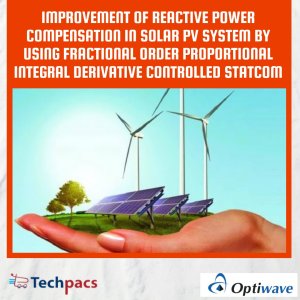
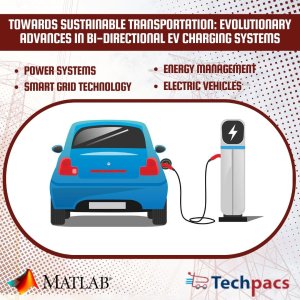
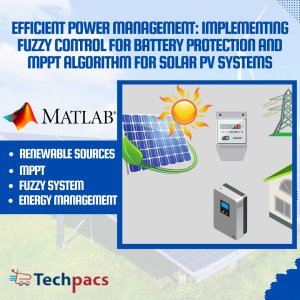
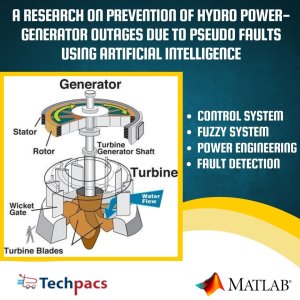
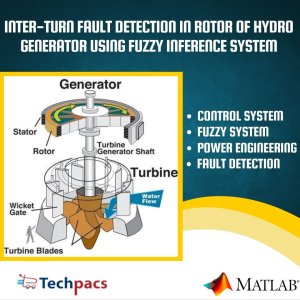































No comments found for this product. Be the first to comment!